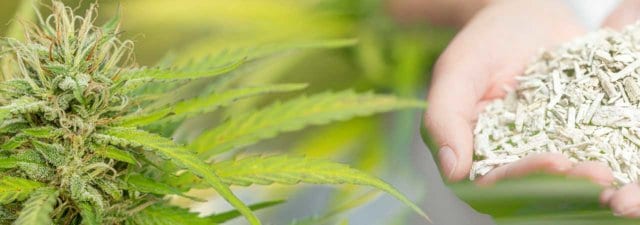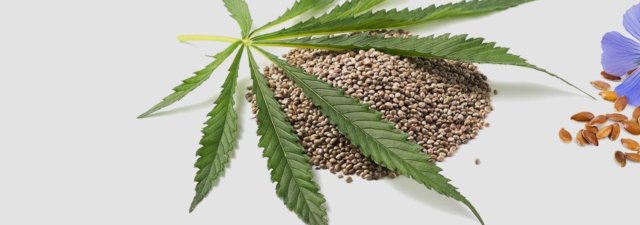Hemp protein is a product that is finally getting the recognition it deserves. Indeed, a growing number of people now view hemp seeds as a superfood. They are extremely nutritious and offer a significant range of possible health benefits.
While hemp comes from the same species as marijuana (Cannabis sativa), it is of a different variety. One crucial difference is the lack of the intoxicating cannabinoid, THC. Hemp seeds contain minimal levels of THC and are surprisingly high in protein. In fact, there are over 31 grams of protein in every 100 grams of hemp seeds.
This is why hemp protein is made using hemp seeds. Manufacturers treat the seeds and expel much of the oil via a cold press. This process removes a significant amount of fat. The resulting seed cake is milled and sifted to produce hemp protein powder.
In this guide, we outline just five of the wonderful benefits of hemp protein.
1 – Hemp Protein Has a Remarkable Nutritional Level
Apart from their high protein content, hemp seeds have an array of nutrients. In general, they contain over 30% fat. Those who consume the seeds benefit from omega-6 and omega-3 fatty acids. Hemp protein often has much of the oil removed, but there is still enough remaining to derive ample benefits.
The unsaturated fats in hemp protein are also beneficial. Hemp protein usually contains around 10% of the hemp seed’s original fat content. One 30-gram serving still provides up to 3g of mainly unsaturated fat.
You also get the benefit of around 20 amino acids. These include all nine essential amino acids. These are the building blocks for proteins that comprise up to 20% of the body.
Hemp protein is also an excellent fiber source. Most products contain up to eight grams of fiber per 30 grams.
In general, women should consume up to 25g of fiber a day, while the level is 38g for men. Incredibly, fewer than 5% of the American adult population meet these guidelines!
Hemp protein is particularly rich in Vitamin E, magnesium, potassium, iron, zinc, and B vitamins. In some products, a single serving offers up to 80% of your Recommended Daily Allowance (RDA) for magnesium. One serving may also provide over half your iron RDA.
2 – Hemp Protein Has Advantages Over Animal Proteins & Other Plant-Based Options
There are lots of options when your goal is to boost your intake of protein. You can get it through meat, fish, eggs, and other dairy products. However, a growing number of people have issues with specific ‘traditional’ sources of protein.
For example, up to 50 million Americans are lactose intolerant. You may also find it trickier to digest red meat. A study published in the Journal of Agricultural and Food Chemistry in 2010 found that at least 91% of the protein in ground hemp seed is digestible. This ease of digestion is possibly due to the edestin and albumin it contains. The body breaks down these particular proteins relatively quickly.
It is often a better choice than its plant-based counterparts too. No plant-based option is a ‘complete’ protein barring soy. Hemp has all essential amino acids but doesn’t contain large enough amounts of each. However, hemp protein is less likely to be genetically modified than soy. It is gluten-free, dairy-free, and easy to digest.
3 – Hemp Protein Could Improve Cardiovascular Health
According to the CDC, heart disease is the leading cause of death for both genders and most ethnic groups in the United States. Approximately 647,000 Americans die from the condition annually. Cardiovascular diseases (CVD) are also the #1 cause of death globally, claiming almost 18 million lives each year.

However, there is a suggestion that eating hemp protein could reduce the risk of CVD. It contains a significant amount of arginine, an amino acid that produces nitric oxide. This is a gas molecule that helps the blood vessels dilate and relax.
A study published in the journal, Nutrition, in 2005, analyzed 13,000 people. Researchers found that a higher intake of arginine resulted in lower levels of C-reactive protein (CRP). It is known as an inflammation marker, and higher amounts of it increase heart disease risk.
A study published in the American Journal of Physiology in November 2007 also made an interesting discovery. The researchers found that when rats were fed hemp seeds, they experienced a reduction in blood pressure. They also had a reduction in the risk of blood clot formation.
4 – Hemp Protein Has Potential Neurological Benefits
There is a possibility that hemp protein could provide antioxidant effects. This was the finding of a study published in Food Chemistry in 2018.
These antioxidant effects could help if you have one of the following conditions:
- Neuropathic pain
- Parkinson’s disease
- Multiple sclerosis (MS)
- Alzheimer’s disease
A review published in Surgical Neurology International in 2018 looked at the neurological benefits of phytocannabinoids. It found that CBD and other compounds in hemp seeds have neuroprotective effects. They could also help regulate the immune system.
However, most hemp protein powder doesn’t contain much CBD. That’s because hemp seeds themselves have minimal cannabidiol. In theory, at least, hemp protein with added CBD might provide even more potent antioxidant effects.
5 – Hemp Protein Is a Possible Anti-Inflammatory
Hemp seeds contain a ton of omega-3 and omega-6 fatty acids. Indeed, the best hemp protein products on the market include the ideal 3:1 ratio of omega-6 to omega-3. It is a ‘golden’ ratio for better heart health because it can help reduce inflammation.
The seeds used in hemp protein contain a significant level of gamma-linolenic acid (GLA). This is a polyunsaturated fatty acid that has possible anti-inflammatory effects.
Reducing inflammation could help manage the symptoms of specific diseases, including:
- Arthritis
- Type 2 diabetes
- Metabolic syndrome
- Fatty liver disease (when unrelated to alcohol consumption)
It is also worth noting that acne and atopic dermatitis also result from chronic inflammation. A review published in Skin Therapy Letter in 2018 looked at how changes in diet affected skin diseases. The researchers concluded that eating more omega-3s could reduce instances of acne.
Final Thoughts on Hemp Protein: Should You Add It to Your Daily Diet?
It seems as if adding hemp protein to your diet is useful if you believe you don’t get enough vitamins and minerals. You should also consider it if you are vegan or vegetarian, have lactose intolerance, or find that meat causes you digestive problems.
A study in the British Journal of Nutrition suggested that adults require approximately 0.36 grams of protein per body of body weight daily. If you weigh 170 pounds, for example, you need at least 61 grams of protein a day. Those who exercise arguably need double this minimum amount to gain muscle mass and maintain it.
In general, you can consume hemp protein powder at any time of the day. However, those who exercise should ideally eat it no more than two hours after exercise to derive the best recovery benefits.
Have you tried hemp protein? What do you think of it as a supplement?









![Is It Illegal to Grow Hemp? [Understanding the Legalities]](https://wayofleaf.com/wp-content/uploads/2018/09/mj_is-it-illegal-to-grow-hemp-the-truth-640x225.jpg)




